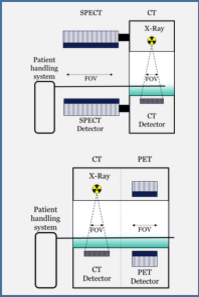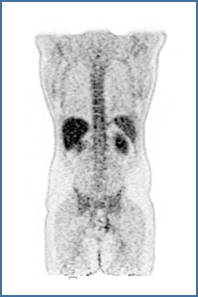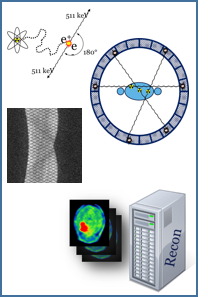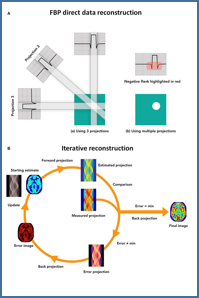System performance and experimental measurement

Hybrid imaging systems physically combine complementary imaging modalities such as SPECT or PET with CT or MRI. In recent years, the used imaging technology has advanced significantly including new detector systems, advanced acquisition methods as well as improvements in data correction and processing. To understand the impact of these new technologies we conduct performance evaluations of new systems as well as application specific performance assessments and phantom experiments. Furthermore, we work on improvements in quality control procedures and novel performance assessment strategies.
Imaging protocol optimization and data harmonization

To leverage the full potential of novel imaging systems, we work on novel imaging methods and optimize imaging protocols together with our clinical partners. These endeavours include novel acquisition schemes for e.g. whole-body dynamic imaging, inclusion of motion management and dose- and acquisition time reduction. Furthermore, we engage in the evaluation of clinical data, and work on means to standardize and harmonize quantitative imaging data.
Monte Carlo Simulations

The physical processes in Nuclear Medicine examinations are complex. To better understand physical interactions and limitations, we establish digital models of Nuclear Medicine imaging systems and used them in Monte Carlo simulations. Furthermore, Monte Carlo simulations are a cheap and fast alternative to physical experiments. We use them for testing acquisition strategies and to produce artificial ground-truth data for the evaluation of advanced data-correction algorithms such as correction techniques for positron range effects or novel reconstructions.
Reconstruction and data correction

Quantitative tomographic imaging requires image reconstruction including appropriate corrections for various physical and technical influences. We work on improvements in reconstruction algorithms and data correction techniques to improve quantitative measures. These include engagements in reconstructions for low count imaging, corrections of positron range in PET imaging as well as accounting for partial volume effects.
